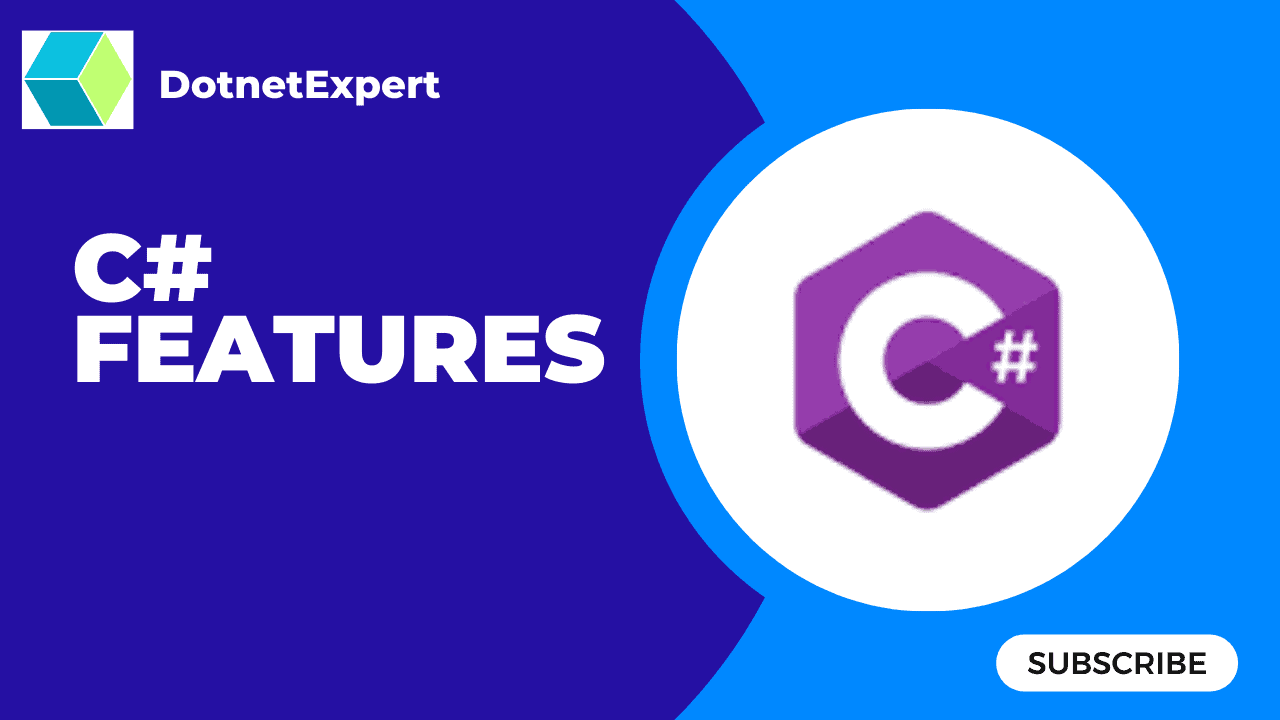Features of C# programming
C# (pronounced “C sharp”) is a modern, general-purpose programming language developed by Microsoft. Here are some of its key features:
Object-oriented programming:
C# is an object-oriented programming language, which means it allows you to create and use objects that encapsulate data and behavior.
Strong typing:
C# is a strongly typed language, which means that variables must be declared with a specific data type, and the compiler will check for type mismatches at compile-time.
Garbage collection:
C# uses automatic garbage collection, which means that the runtime system automatically frees up memory that is no longer being used.
Platform independence:
C# can be used to write applications that run on a variety of platforms, including Windows, Linux, and macOS.
Integration with .NET Framework:
C# is designed to work with the .NET Framework, which provides a rich set of class libraries and tools for building applications.
Language interoperability:
C# is designed to be interoperable with other languages that target the .NET Framework, such as Visual Basic, F#, and C++.
Asynchronous programming: C# supports asynchronous programming, which allows you to write code that can execute concurrently and handle I/O operations without blocking.
LINQ:
C# includes Language-Integrated Query (LINQ), which provides a powerful and expressive way to query data from various sources.
Delegates and Events:
C# supports delegates and events, which allow you to create event-driven applications and provide a flexible way to handle events.
Exception handling:
C# includes a robust exception handling mechanism, which allows you to handle errors and exceptions in a structured and organized way.
List of C# features
- Object-oriented programming: C# is a fully object-oriented programming language, which means that it allows you to create classes, objects, and interfaces that encapsulate data and behavior.
- Type safety: C# is a type-safe language, which means that it ensures type compatibility at compile-time, reducing the possibility of runtime errors.
- Garbage collection: C# uses automatic garbage collection, which means that it automatically frees up memory that is no longer being used, thus helping to prevent memory leaks.
- Cross-platform compatibility: C# can be used to build applications that can run on multiple platforms, including Windows, Linux, and macOS.
- Asynchronous programming: C# supports asynchronous programming, which allows you to write code that can execute concurrently and handle I/O operations without blocking.
- LINQ: C# includes Language-Integrated Query (LINQ), a powerful and expressive way to query data from various sources.
- Delegates and events: C# supports delegates and events, which provide a flexible way to handle events and create event-driven applications.
- Exception handling: C# includes a robust exception handling mechanism, which allows you to handle errors and exceptions in a structured and organized way.
- Generics: C# includes a powerful and flexible mechanism for creating generic classes and methods, which enables you to write reusable code that can work with any data type.
- Reflection: C# includes a reflection mechanism, which allows you to inspect and manipulate objects at runtime, enabling advanced features such as dynamic loading of assemblies and late binding.
- Properties: C# provides a convenient way to encapsulate fields and expose them through properties, allowing you to control access to object data and behavior.
- Indexers: C# supports the creation of indexers, which allow you to access elements of an object as if it were an array.
- Attributes: C# includes a mechanism for attaching metadata to types, methods, and properties, enabling advanced features such as reflection and code generation.
- Multithreading: C# supports multithreading, which enables you to write code that can execute concurrently on multiple threads, improving performance and responsiveness.
- Tuples: C# includes support for tuples, which enable you to group multiple values into a single object, providing a convenient way to return multiple values from a method or to pass multiple values as parameters.

1 thought on “Features of C# Programming”